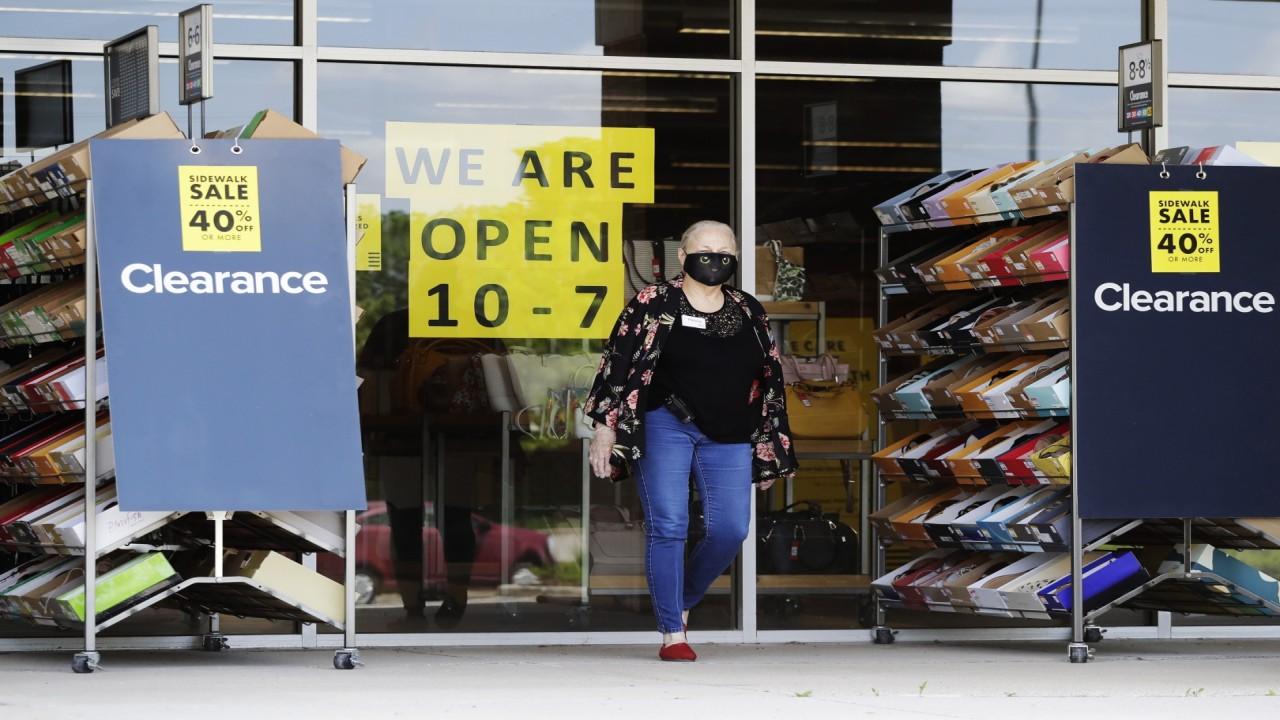One-quarter of Americans would increase risk of coronavirus exposure to shorten economic recovery
26% of Americans were predominantly concerned about the time it will take for the US to bounce back from the coronavirus pandemic
More than one-quarter of Americans would trade-off a higher risk of contracting the novel coronavirus if it shortened the nation’s economic recovery.
That’s according to a new study published by Duke University’s clinical research institute, which found that 26 percent of Americans were predominantly concerned about the time it will take for the U.S to bounce back from the coronavirus pandemic and the ensuing economic lockdown. Those respondents said they were willing to accept a 16 percent risk of being infected with COVID-19 if it shortened the recovery from three years to two years.
WHITE HOUSE MULLS MORE VIRUS RELIEF: HERE'S WHAT IT COULD INCLUDE
Another 13 percent said they would accept infection risks “well beyond 20 percent” to avoid a delay in the reopening of businesses across the country. About one in five independents was likely to be in that group, compared to 6 percent of Democrats and 12 percent of Republicans.
Still, the majority of the study’s 5,953 respondents -- about 37 percent -- said they were reluctant to accept any increases in risk of contracting the virus, whether or not it helped the nation’s economy.
WHAT HAPPENS TO YOUR UNEMPLOYMENT BENEFITS IF YOU REFUSE TO GO BACK TO WORK?
Respondents largely agreed that reopening nonessential businesses was the most important policy, with 37 percent ranking it as No. 1. Reopening schools and colleges was the second-most important policy, followed by allowing dine-in meals in restaurants, reopening parks and museums, allowing religious services to resume and allowing sporting events to resume.
Respondents were divided into four groups: Class 1 were deemed “risk minimizers” -- or the 37 percent of people who were in favor of scenarios with lower chances of contracting the virus. About 44 percent of all Democrats surveyed and 40 percent of all Republicans were predicted to be in this group, compared to just 27 percent of independents.
CONGRESS HAS FUNNELED TRILLIONS TO CORONAVIRUS RELIEF. WHERE IS THAT MONEY GOING?
“When acceptance of social-distancing measures are framed in the context of tradeoffs among COVID-19 risks, longer economic downturns, and more families falling below the poverty line, we found that self-identified Democrats and Republicans actually had more similar tradeoff preferences compared to those identifying as independents,” the researchers wrote.
Class 2 were referred to as “waiters,” or people who wanted to delay the reopening of nonessential businesses until October, while Class 3 were identified as “pro-business.” Class 4, those who strongly supported reopening, were referred to as “openers.”
More than 40 million Americans have lost their jobs as a result of the coronavirus-induced economic shutdown, a rate unseen since the Great Depression. The nation's unemployment rate surged to 14.7 percent in April, and likely ballooned to at least 20 percent in May.
GET FOX BUSINESS ON THE GO BY CLICKING HERE




















